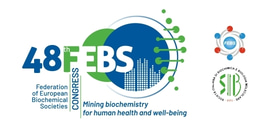Professor Dame Janet Thornton is the inaugural winner of 'The FEBS Journal Open Science Award'

In this Editorial, we highlight the major contributions of Professor Dame Janet Thornton, the inaugural recipient of ‘The FEBS Journal Open Science Award’, to making scientific research accessible, transparent and reproducible through the development of ELIXIR and the creation of freely available computational tools and knowledge resources.
Open Science has greatly aided scientific progress through more open sharing of datasets, software, reagents, computational tools, molecular structures and much more. As a consequence, research progress has become faster and more collaborative, and nowhere was this more evident than during the COVID-19 pandemic when the sharing of data, preprints and other resources was instrumental to numerous scientific breakthroughs concerning the SARS-CoV-2 virus and the development of multiple vaccines at breakneck speed (1, 2).
There have been a number of pioneers in the Open Science arena that have championed collaborative research efforts and the sharing of scientific resources for many years. To recognise these exemplary scientific citizens, the editorial board and editorial staff of The FEBS Journal recently decided to institute an Open Science prize.
We are delighted to announce that the inaugural winner of 'The FEBS Journal Open Science Award' is Professor Dame Janet Thornton, a senior group leader and Director Emeritus of EMBL’s European Bioinformatics Institute, for her major role in the development of ELIXIR, the pan-European infrastructure for biological data, since its initial launch. The Thornton group has also generated several computational tools and knowledge resources, such as PROCHECK and CATH (3, 4), that are freely available to the scientific community and can be found here: https://www.ebi.ac.uk/research-beta/thornton/software/.
Prof. Thornton's research in structural bioinformatics has focused on understanding protein structure and function, and her contributions to the life sciences have been recognized through numerous awards and honours. An in-depth interview with Prof. Thornton, conducted as part of our 'In conversation with...' series, can be found here (5).
Read the Editorial to find out what Professor Thornton had to say when notified about the award.
Cover image source: Shutterstock (Item ID: 2018028506).
References
- Lurie N, Saville M, Hatchett R & Halton J (2020) Developing Covid-19 Vaccines at Pandemic Speed. N Engl J. 382(21):1969-1973.
- Dhillon P, Altmann D & Male V (2021) COVID-19 vaccines: what do we know so far? FEBS J 288, 4996– 5009.
- Laskowski RA, MacArthur MW, Moss DS & ThorntonJM (1993) PROCHECK: a program to check the stereochemical quality of protein structures. J Appl Cryst. 26, 283–291.
- Orengo CA, Michie AD, Jones S, Jones DT, Swindells MB & Thornton JM (1997) CATH–a hierarchic. classification of protein domain structures. Structure. 5, 1093–1108.
- Dhillon, P & Thornton, JM (2020) In conversation with Janet Thornton. FEBS J. 287, 4106–4113.




Join the FEBS Network today
Joining the FEBS Network’s molecular life sciences community enables you to access special content on the site, present your profile, 'follow' contributors, 'comment' on and 'like' content, post your own content, and set up a tailored email digest for updates.